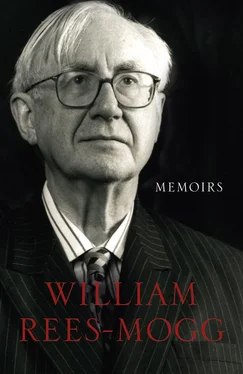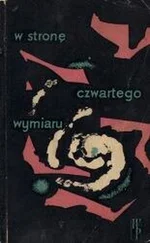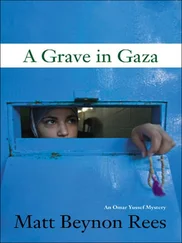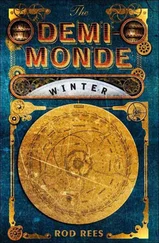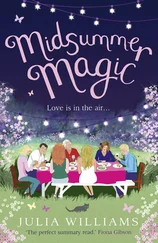We did not treat Jutta well. We suspected her of spying, probably rightly. The Hitler Youth who visited Britain were instructed to take photographs of local landmarks; German information packs, prepared for the 1940 invasion which never happened, included some of these snapshots. Jutta was a great photographer of landmarks. We could not stop her photographing Cholwell, which is indeed a prominent landmark, but we tried to prevent her photographing the tower of Downside Abbey. Whether we succeeded or not, I do not know.
We did not like Jutta, and she did not like us. The most spiteful thing I remember doing was cheating at Monopoly to make sure that she did not win. I have heard occasional distant accounts of her since the war, that she had been widowed, that she had become a hippy, that she was living in the Mediterranean. Among the evil things the Nazis did, the perversion of her adolescent enthusiasm is only a tiny mark. We knew, through her, that the Hitler regime was hysterical, evil and dangerous. It helped prepare us for what was to happen next.
When the war came Elizabeth joined the WAAF and worked as a translator. At the end of the war she worked on the repatriation of German prisoners of war and married a young German officer, Peter Bruegger, who had been classified as ‘White’, because he was anti-Nazi. He farmed our home farm. Though the marriage did not last, he became a popular local figure and was much loved by our children.
* * *
Until I was nine, I was educated at home. My father taught me which didn’t work terribly well when I was little because he was tall and impressive and could have a short fuse. It worked extremely well when I was a bit older. I also had lessons with Miss Farr, a young woman from Bristol, who was my sister Anne (Andy)’s excellent governess. Anne was educated at home until she was sixteen because she suffered from acute migraines. Miss Farr eventually left to marry a Mr Farr and become a Mrs Farr. If I did my lesson correctly, she would stick a coloured paper star in the exercise book; if I got five stars, she would stick in a paper duck. I was easily motivated by such rewards. Between lessons I would play with Anne in the garden. My sisters, with their long legs, climbed trees which were too difficult for me. Besides I was something of a coward and they were both bold and debonair.
In 1937, the summer of my ninth birthday, I went to board at the preparatory school of Clifton College. On the night of the Munich agreement we were supposed to be asleep in the dormitory of Matthew’s House, the Junior House, just opposite Clifton Zoo. There were twenty boys in my dormitory. We were excited by the prospect of war, not because we wanted war – we were too sensible for that – but because it would be so great an event. Mr Jones, our house tutor, was listening to the news on his radio, in the room below. Infuriatingly, we could barely hear it. However, we heard enough to know that, for the present, Munich meant peace, not war. I remember my feeling of disappointment as the adrenalin rush slowed.
I remember my own eleventh birthday on 14 July 1939, as the last carefree day of that pre-war summer. A special cake was baked at Cholwell. It had a cricket field, in green icing, two sets of stumps, a bat and a ball, all edible and made from marzipan. It was the custom at Clifton Preparatory School for the boy whose birthday it was to distribute his cake, so it had to be quite a large one, enough for thirty boys. The mood was cheerful, our exams were over, and we had prospect of the long summer holidays and I also had the August cricket festival at Weston-super-Mare to look forward to.
But only a few weeks later, on my sister Elizabeth’s birthday, 23 August, hope was extinguished by the announcement of the Nazi–Soviet pact. With Stalin as Hitler’s ally, war had become inevitable; we all knew it, in Temple Cloud just as surely as in Westminster.
On 1 September, I went down as usual to the library in Cholwell to have my morning lesson with my father. Frank Cooper, who took orders for the local grain merchant, was discussing how many bags of mixed feed my father would need for the pigs. Fletcher interrupted him to turn on the nine o’clock news on the BBC. Germany had invaded Poland. Frank Cooper left, after a few sad words. He, too, had fought in the Great War, as it was still called. My father telephoned his next contact in the network of Air Raid Precautions. He used a First World War phrase, ‘The balloon’s gone up.’
Two days later, we listened on the nursery wireless to Neville Chamberlain’s broadcast, as we had listened only less than three years before, to King Edward VIII’s abdication broadcast. Both broadcasts spoke of failure; in both there was a displeasing note of self-pity. I did not feel hostile to Neville Chamberlain, but I did not feel sorry for him either. I thought then, as I think now, that he had tried a policy of appeasement in all good faith; it had not succeeded because Hitler had always intended war. It was an honourable failure, but Neville Chamberlain’s personal disappointment was a petty thing beside the disaster which had fallen on the world. Chamberlain did not sound like a war leader.
I was still of an age when I was given supper in bed. I slept in the pink room on the south-west corner of Cholwell, with windows on one side looking down the drive and on the other looking out over Paul Wood. My supper consisted of bread and honey, a banana and a glass of milk. Later in that September, I remember listening to the evening news bulletin from my bed.
The Government was concerned that in 1914 there had been undue optimism about the length of the war, and talk of ‘the boys being home for Christmas’. They were anxious that this should not happen again, and put out an official forecast that this war would last for three years. I did not doubt that Britain would eventually win it. I assumed that the pattern of the First World War would be repeated, that eventually the United States would be drawn in, and that American industrial capacity would be decisive. I was, however, very interested in the question of how long the war would last, since I would have to plan my own life in terms of that expectation.
I remember doing a simple sum. Governments, I thought, are always wrong. If the Government thinks the war will last three years, it will be longer than that. It will probably last twice as long. I should, therefore, base my own planning on the war lasting for six years. I was now eleven years old. In six years’ time I should be seventeen. I should not be old enough to fight before the war was over.
This judgement proved to be correct – the war in Europe ended shortly before my seventeenth birthday and the war in Japan shortly thereafter. I had to do two years’ National Service, but that was in the peacetime RAF and I never regarded it as anything other than an interruption, somewhat unwelcome, in ordinary life. I do not think this attitude was unpatriotic. I was entirely prepared to join the forces. But I did decide I should concentrate on getting ahead with my school life, without thinking that I must prepare myself to be a soldier.
In fact, for the first six months, hardly anyone was doing any fighting, apart from the German invasion of Poland and the disastrous Russian invasion of Finland. At Clifton we made model aircraft out of balsa wood; the wings usually fell off mine. I remember being cold at Clifton, so cold that I used to go to bed with a torch battery in my pyjama breast pocket. I would short-circuit the battery, so that it would spread a little warmth over the area of my heart. There was also a certain amount of bullying.
One boy, in particular, was being bullied. He was a gentle, rather plump boy who came, I think, from Wales. I rather liked him. I remember discussing this with Bishop, another friend who was later killed, perhaps while still at school, in a cycling accident. I asked Bishop whether he did not think that we ought to do something about it. He gave me a political reply, based on the then unknown theory of the pecking order.
Читать дальше
